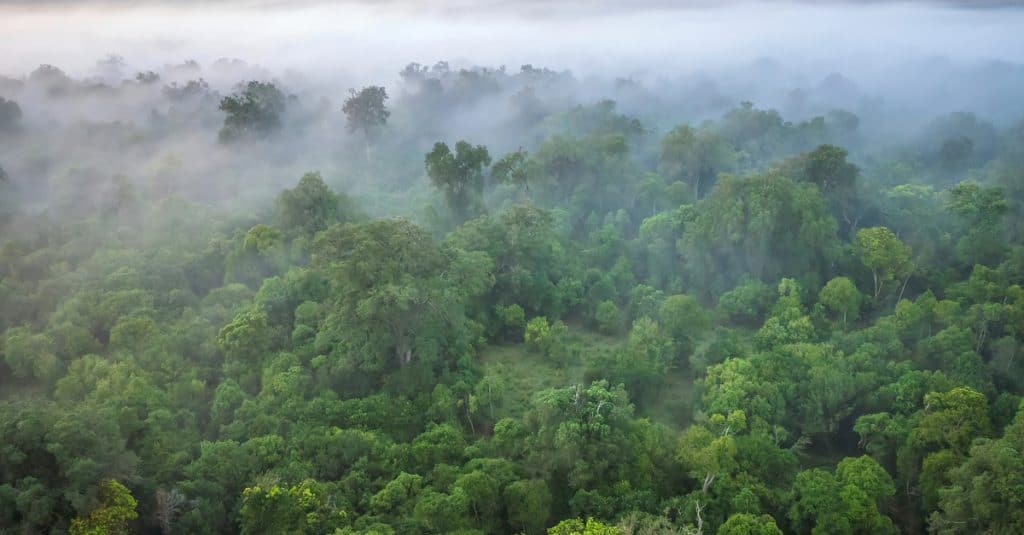The term “green lung of the planet” refers to the large forests of the Earth, which produce oxygen for the air and fix atmospheric CO2 through photosynthesis. This is why the preservation of tropical forests is necessary to achieve control of climate disruption, limiting global warming to well below 2°C and continuing efforts to limit it to 1.5°C by 2100, as stipulated in the Paris climate agreement. Central Africa has a key role to play in achieving this global climate objective. The region is home to the world’s second largest tropical forest, with the lowest deforestation rate in the world at 0.3% per year, according to the Congo Basin Forest Commission (Comifac).
One month before the opening of the COP 26 climate conference (November 1-12, 2021 in Glasgow, Scotland), the City of Paris (France) is organizing a day of debate on the future of the Congo Basin forests. The virtual event on October 6, 2021 will focus on financing the preservation of the Congo Basin forests. “Between the need to respond to global challenges and the priorities of some of the poorest countries on the planet, agendas are not necessarily convergent. Yet there is an urgent need to find a path that reconciles development and the environment,” explains the organizer.
Climate finance, a priority for the Congo Basin
The issues at stake during the day of debates on the future of the Congo Basin forests are similar to those formulated last April by Presidents Félix Tshisekedi of the Democratic Republic of Congo (DRC), Ali Bongo Ondimba of Gabon, Uhuru Kenyatta of Kenya, Muhammadu Buhari of Nigeria and Cyril Ramaphosa of South Africa. Taking part in the leaders’ summit on climate, the five African heads of state stressed the need for substantial climate financing for Africa. For them, the developed countries must commit to filling their climate financing gap before 2020, that is to say 100 billion dollars. This annual average should be the floor, not the ceiling, and continued efforts should be made to identify and meet the needs and priorities of developing countries.
Read also- AFRICA: Preserving the Congo Basin, one of the resolutions of the IUCN Congress
In a joint statement issued on September 24th, 2021, the Executive Secretaries of the UN Regional Commissions called for enhanced regional cooperation to develop natural and technological solutions to capture CO2 from the atmosphere and ensure its long-term storage. They said developed countries should put a fair price on carbon stocks held as global assets in tropical forests and peatlands, and support efforts to increase the capacity of these carbon sinks, which are at risk of becoming carbon sources with increasing land degradation from climate change.
Boris Ngounou
